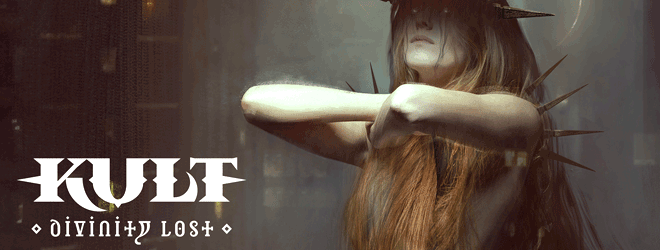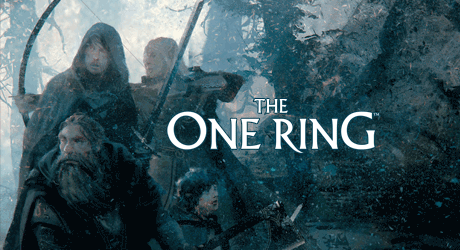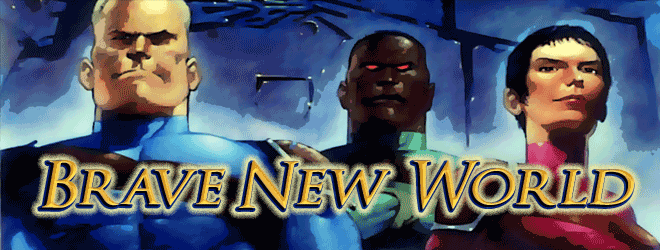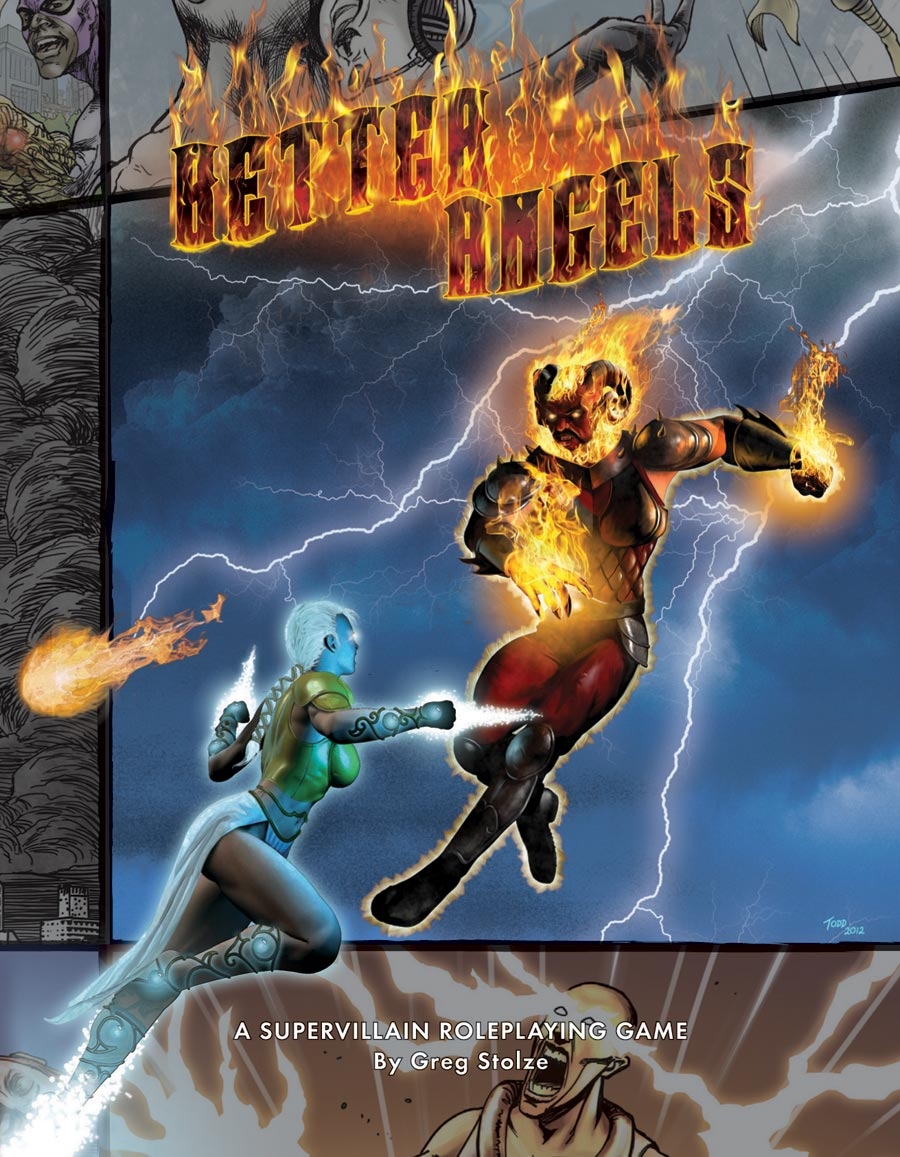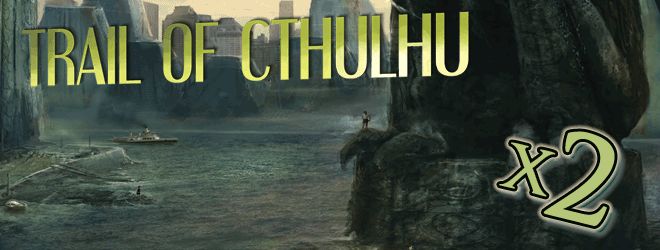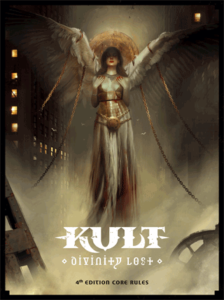 Our 2020 October Horrors sequence concluded with the Kult: Divinity Lost Bundle, with the entire product line to date from the 2018 Helmgast edition of the acclaimed RPG of contemporary Gnostic horror, Kult. The world around us is a lie, and humanity is trapped in Illusion. By discovering the truth about our prison, our captors, our hidden past, and our Shadow selves, player characters hope to awaken from their induced sleep and take control of a stolen destiny. Funded in a February 2016 Kickstarter campaign, the new Kult: Divinity Lost updates the original 1991 Kult to the present with an entirely new rules set Powered by the Apocalypse. But just as before, death in Kult is only the beginning. Escape your nightmares, strike bargains with demons, and try to stay alive in a world full of pain.
Our 2020 October Horrors sequence concluded with the Kult: Divinity Lost Bundle, with the entire product line to date from the 2018 Helmgast edition of the acclaimed RPG of contemporary Gnostic horror, Kult. The world around us is a lie, and humanity is trapped in Illusion. By discovering the truth about our prison, our captors, our hidden past, and our Shadow selves, player characters hope to awaken from their induced sleep and take control of a stolen destiny. Funded in a February 2016 Kickstarter campaign, the new Kult: Divinity Lost updates the original 1991 Kult to the present with an entirely new rules set Powered by the Apocalypse. But just as before, death in Kult is only the beginning. Escape your nightmares, strike bargains with demons, and try to stay alive in a world full of pain.
Divinity Lost modifies the Apocalypse Engine, replacing the standard 2d6 roll with 2d10; a result of 15 or more is a complete success, 10-14 success with complications, and 9 or less failure. Playbooks include Academic, Avenger, Broken, Cursed, Deceiver, Fixer, Occultist, Prophet, Ronin, Seeker, and more. Though all player characters share the same set of generic Moves like Act Under Pressure, Keep It Together, and See Through the Illusion, and a Stability score that measures emotional composure, every PC has unique Dark Secrets and pre-established Relations with other PCs. Relations are your key to gaining Stability — or, all too often, losing it. Your character advances by learning more about the Truth; after 10 Advancements you can become an Enlightened Archetype, which brings “mental illumination and sometimes physical changes.”
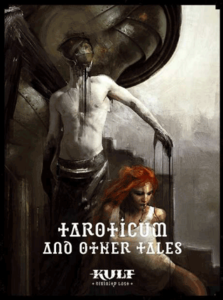 Divinity Lost dramatically increases the range of Moves the Gamemaster uses to respond to player actions. In addition to 15 Regular Moves like Put Someone in a Bad Spot, Decrease Stability, and the ever-handy Make a Move for a Higher Plane of Existence, the GM also has Moves for Passion (Insight Into the Divine, Become a Victim of Passion), Dream (A Portal is Opened, Attract Dream Prince’s Attention), Madness (Distortion of Time and Space, Bodily Changes, Attract Beings), and locale-specific sets of actions for Elysium, Gaia, Metropolis, Inferno, and Underworld. You get a strong sense of Kult GMing duties from the long list of pre-defined, expected Moves like Entrancement of the Soul, Influence of the Death Angels, Out-of-Body Experience, Under the Control of Higher Beings, and (ohhhh, look!) Virgin Births.
Divinity Lost dramatically increases the range of Moves the Gamemaster uses to respond to player actions. In addition to 15 Regular Moves like Put Someone in a Bad Spot, Decrease Stability, and the ever-handy Make a Move for a Higher Plane of Existence, the GM also has Moves for Passion (Insight Into the Divine, Become a Victim of Passion), Dream (A Portal is Opened, Attract Dream Prince’s Attention), Madness (Distortion of Time and Space, Bodily Changes, Attract Beings), and locale-specific sets of actions for Elysium, Gaia, Metropolis, Inferno, and Underworld. You get a strong sense of Kult GMing duties from the long list of pre-defined, expected Moves like Entrancement of the Soul, Influence of the Death Angels, Out-of-Body Experience, Under the Control of Higher Beings, and (ohhhh, look!) Virgin Births.
Kult has always been, and remains, a game of visceral and psychological horror about madness, sex, brutality, and death. When the original edition arrived in Italy, the Pope reputedly banned it. The rulebook discusses safe words and hand gestures that let players stop a scene. Clearly this game isn’t for everyone. But if your players appreciate its themes of human nature and the Shadow within, Kult can produce intense experiences of a kind unlike many horror RPGs.
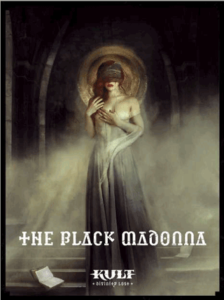 There were three titles in our Starter Collection (retail value $51.50) as DRM-free .PDF ebooks, including the complete Kult: Divinity Lost core rulebook along with its Gamemaster Screen and its handy Reference Deck. Those who paid more than the threshold (average) price also got our entire Bonus Collection with three more titles worth an additional $55, including the full-length campaign The Black Madonna, the collection of seven short scenarios Taroticum and Other Tales, and the unsettling Kult: Divinity Lost Tarot Cards, which are used in the title scenario of Taroticum.
There were three titles in our Starter Collection (retail value $51.50) as DRM-free .PDF ebooks, including the complete Kult: Divinity Lost core rulebook along with its Gamemaster Screen and its handy Reference Deck. Those who paid more than the threshold (average) price also got our entire Bonus Collection with three more titles worth an additional $55, including the full-length campaign The Black Madonna, the collection of seven short scenarios Taroticum and Other Tales, and the unsettling Kult: Divinity Lost Tarot Cards, which are used in the title scenario of Taroticum.
 Ten percent of each payment (after gateway fees) went to the charity designated by Chris Birch of Modiphius Entertainment (distributor of Kult: Divinity Lost), Vision Rescue. In Mumbai, India, Vision Rescue feeds and educates slum children and their parents to free them from exploitation and live with dignity.
Ten percent of each payment (after gateway fees) went to the charity designated by Chris Birch of Modiphius Entertainment (distributor of Kult: Divinity Lost), Vision Rescue. In Mumbai, India, Vision Rescue feeds and educates slum children and their parents to free them from exploitation and live with dignity.
